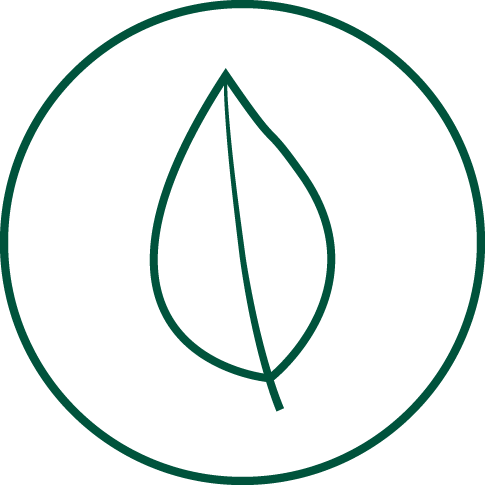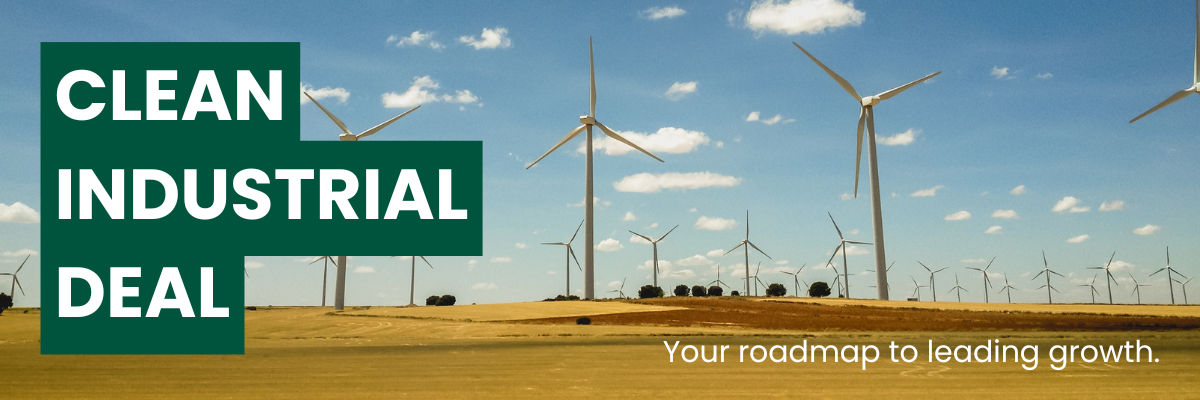
Written by Martijn Meijer
Dear reader,
Welcome to the latest edition of our EU Energy & Climate Policy Update. This time around, we take a closer look at the energy aspects of the European Commission’s Work Programme for 2026, while we also shine a light on a new initiative relating to critical raw materials that Ursula von der Leyen announced in Berlin last weekend.
Europe’s bold plan for sustainable growth, the “Clean Industrial Deal”, represents a major shift for EU businesses, especially in energy-intensive sectors. Don’t miss your chance to engage with the Commission to shape this deal and influence the policy direction for the next five years.

The spotlight
Commission Work Programme 2026
The European Commission unveiled its 2026 Work Programme on 21 October, which outlines new initiatives it aims to present next year. For Europe, the programme comes during a time of persistent threats to security, democracy, and economic stability.
Consequently, the Work Programme builds on measures intended to secure strategic autonomy, competitiveness, and innovation. The Commission’s message is clear: the EU is striving for a stronger, more independent Europe, which should be able to manage and support its own industry, defence, technology, and energy supply.
The Commission stresses the importance of internal unity. Recent fractures in relations between Member States, partly caused by Russian aggression, alongside domestic challenges in key countries like France, are seen as weakening the EU’s position.
A sense of speed and urgency also defines the programme, with the Commission stressing the need for accelerating the rollout of support for competitiveness and innovation.
Simplification and US relations
Simplification will continue to be a standard operating procedure. The programme pledges to make EU legislation “leaner and clearer.” This is intended to improve enforceability and reduce administrative burdens by 25% overall, and by 35% for SMEs.
Finally, the Commission aims to convert the trade framework with the US into “opportunities” and expand cooperation. It appears the institution hopes, or believes, that the agreement will hold, despite pressure from the US government relating to EU legislation.
Key initiatives for 2026
The Work Programme lists several key initiatives for 2026. Energy files are particularly well-represented.
Q1 2026 will see an Electrification action plan and a legislative package on strengthening energy security. This is followed by an Omnibus to simplify energy product legislation (Q2 2026).
Later in the year, the Commission will present an Energy Union package for the decade ahead (Q3 2026). Other key energy files include the development of CO2 transportation infrastructure and markets, and the setting up of the renewable energy framework.
By the end of the year (Q4 2026), an update to the governance of the Energy Union and Climate Action is expected, which should include plans for the phase-out of fossil fuel subsidies.

Impact analysis for your business
Our free policy updates keep you informed, but is that enough? With our tailored EU Energy & Climate Policy Update you’ll receive:
- Custom insights on how upcoming policy changes might impact your business;
- Strategic advice from your dedicated policy consultant on how to turn challenges into opportunities;
- Early warnings about key legislative developments.

Policy updates
EU hits Russia with new energy sanctions
On 23 October, EU Member States adopted a 19th sanctions package, which, among others, takes aim at Russia’s energy lifelines. The new measures include a total ban on Russian LNG by 2027, tighter action against the shadow fleet transporting oil, and new restrictions on Rosneft and Gazprom Neft. The package also targets Chinese and UAE oil traders helping fund Russia’s war and expands bans on energy-related services and scientific cooperation. Together, these steps mark the EU’s strongest move yet to cut Moscow’s fossil fuel revenues and boost energy security.
Update on EU climate target ahead of COP30
With COP30 in Belém, Brazil, just weeks away, the EU is aiming to finalise its climate commitments on time. On 21 October, Environment Ministers agreed on the EU’s negotiating stance, reaffirming the 1.5 °C Paris Agreement goal. Nevertheless, a concrete target is still missing. Instead, a statement of intent endorsed by the Council in September settled on a 66.25%–72.5% reduction range compared to 1990 levels, ensuring the EU can submit its nationally determined contribution (NDC) ahead of the Summit. On 23 October, the Parliament pushed for a target at the higher end of this range during its plenary session.
The Danish Presidency aims to bridge the 2035 and 2040 targets at the Environment Council on 4 November, just days before COP30, in hopes of finalising the EU’s long-term climate strategy. On 23 October, the European Council agreed that any climate commitments have to be cost-efficient and technically neutral. Nevertheless, debates about the EU’s ambition, natural carbon sink contributions, international carbon credits, and the addition of a possible review clause have prevented an agreement.
Commission outlines actions to make energy bills more affordable
On 21 October, the European Commission announced seven new actions under the Affordable Energy Action Plan to make energy more affordable for both households and industries. Despite progress, EU energy prices still outpace those of global competitors.
The plan includes more state aid for energy-intensive industries, smarter use of EU funds to upgrade grids and storage, a €500 million pilot with the EIB to boost green power deals, and faster renewable project permitting. The EU also wants to diversify gas supplies, improve cross-border connections, and help countries cut energy taxes to bring bills down faster.
EU launches global strategy for a clean and resilient transition
On 16 October, the European Commission and the High Representative unveiled a new strategy to strengthen the EU’s global leadership in the clean transition. Building on the Clean Industrial Deal, the plan aims to make the EU a top supplier of clean tech worldwide and boost competitiveness.
Key actions include expanding green partnerships, promoting carbon pricing, and using tools like the Global Gateway Investment Hub to drive clean investments abroad. The EU also links climate action with security and resilience, deepening cooperation through the UN, NATO, and new alliances.
EU unveils €618 million package to boost renewables in Africa
On 9 October, at the Global Gateway Forum in Brussels, Commission President Ursula von der Leyen announced a €618 million Team Europe package to accelerate Africa’s clean energy transition. The funding supports projects in Kenya, Uganda, Mauritania, Nigeria, Togo, and others, focusing on electrification, grid modernisation, and renewable access.
The initiative is part of the Scaling Up Renewables in Africa campaign, co-led with South African President Cyril Ramaphosa and Global Citizen, and builds on the Africa–EU Green Energy Initiative. It aims to give 100 million people access to power by 2030 and strengthen partnerships under the EU’s Global Gateway strategy.

Clean Industrial Deal
ReSourceEU: Europe’s new strategy for critical raw materials independence?
Speaking at the 2025 Berlin Global Dialogue, President of the European Commission, Ursula von der Leyen, delivered a clear message: Europe must move faster, act smarter, and secure its independence in an increasingly unpredictable global economy.
Highlighting growing geopolitical tensions and supply chain vulnerabilities, such as the tightened export controls by China on rare earths, von der Leyen announced the launch of RESourceEU: a new initiative designed to strengthen Europe’s long-term access to critical raw materials (CRMs) essential for industries ranging from clean energy to defence and digital technologies.
While we do not have all the details yet, below we set out what we do know about ReSourceEU.
What is RESourceEU about?
RESourceEU will focus on building resilience through recycling, joint purchasing, and stockpiling, while promoting domestic production and processing of key materials within European borders.
The strategy will also expand global partnerships with third-party countries, such as Australia, Canada, Ukraine, Chile, and Kazakhstan, supported through the EU’s Global Gateway investment framework.
Building on the success of REPowerEU, which strengthened Europe’s energy security after the Russian oil and gas crisis. Now, the same sense of urgency is being applied to raw materials; vital for electric vehicles, semiconductors, and advanced manufacturing.
The new initiative is expected to complement the Critical Raw Materials Act, which also aims to reduce the EU’s strategic dependence on China.
Although specific details have yet to be disclosed, the measure could unlock opportunities for Europe’s industrial base at a time when diversification is urgently needed. Beijing’s recent decision to impose export controls on rare earth minerals has already forced some EU firms to suspend production.
With China currently responsible for around 70% of global mining and 90% of refining capacity, the situation highlights both the vulnerability of existing supply chains and the potential for the EU to accelerate investment, innovation, and leadership in critical raw materials and advanced manufacturing.
Next steps
The Commission aims to finalise a comprehensive plan by year’s end to reduce Europe’s reliance on China for critical minerals.





